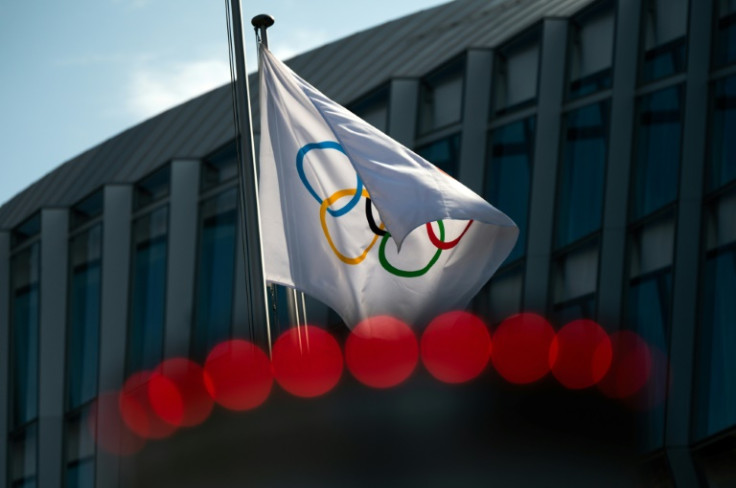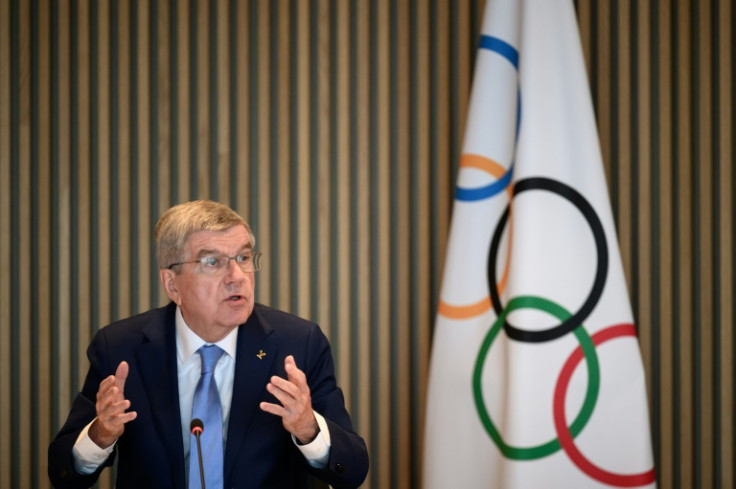Can Russia, Belarus Participate In Olympics 2024? IOC Reveals Criteria For Participation

KEY POINTS
- Athletes with Russian and Belarusian passports can join international events, the IOC says
- They must compete as individual neutral athletes and meet anti-doping requirements, among other things
- These requirements do not concern the participation of Russian and Belarusian athletes at the upcoming Games
Russian and Belarusian athletes should be allowed to join international sporting events under certain conditions, the International Olympic Committee (IOC) has recommended.
However, these recommendations from the Olympics organizer do not concern the participation of Russian and Belarusian athletes at the upcoming 2024 and 2026 Games to be held in France and Italy, respectively.
While the IOC's Executive Board (EB) reaffirmed its condemnation of Russia's invasion of Ukraine Tuesday, it gave International Federations (IF) and international sports organizers recommendations on how to admit athletes with Russian and Belarusian passports to their competitions.
"Athletes with a Russian or a Belarusian passport must compete only as Individual Neutral Athletes," the IOC recommended, among other things.
Meanwhile, those who "actively support the war" as well as those who were contracted to the Russian or Belarusian military or national security agencies should be barred from competing, according to the IOC EB.
Another of the board's recommendations was for such individual neutral athletes to be required to "meet all anti-doping requirements applicable to them and particularly those set out in the anti-doping rules of the IF."
Doping has resulted in Russia being stripped of 51 Olympic medals as of June 2021, data provided by Statista showed. The countries with the next highest amount of stripped medals were Belarus and Ukraine with 11 medals each.
The IOC provided these recommendations after Olympic Movement stakeholders requested last December for the Olympic Games organizer to explore a pathway for these athletes to return to international competitions.
These "do not concern the participation of athletes and their support personnel with a Russian or Belarusian passport at the Olympic Games Paris 2024 or the Olympic Winter Games Milano Cortina 2026," the IOC EB clarified.
"The IOC will take this decision at the appropriate time, at its full discretion, and without being bound by the results of previous Olympic qualification competitions," the organization said.
Ukraine, which has threatened to boycott the 2024 Paris Olympics, condemned the IOC's recommendations, with the Ukrainian Ministry of Youth and Sports saying in a statement issued Wednesday that the Olympics organizer did a "partial change of the position... regarding the non-admission of Russian and Belarusian athletes."
"We have consistently advocated and will continue to insist that under the conditions of the unprecedented unprovoked military aggression of the Russian Federation with the support of the Republic of Belarus against Ukraine, which contradicts the principles of the Olympic Charter, representatives of aggressor states should not be present at international sports arenas," the ministry's statement read.
More than 200 Ukrainian athletes and coaches have been killed since Russia began its invasion in late February of last year, the Ukrainian newspaper Kyiv Post reported.
Russia, for its part, also criticized the IOC's recommendations.
"The parameters as announced are absolutely unacceptable. This is discrimination on the basis of nationality, as repeatedly noted by international human rights specialists," Russian Olympic Committee president Stanislav Pozdnyakov said during a news conference, according to a report by Reuters.
IOC president Thomas Bach defended the recommendations, saying the participation of athletes with Russian and Belarusian passports in competitions "works" despite the ongoing war, CNN reported.
The IOC sanctioned Russia and Belarus following the former's full-scale invasion of Ukraine, a penalty that the organization recommends should still "remain firmly in place."
Among these sanctions was a ban on the organization of international sporting events in Russia and Belarus, the latter of which did not commit its military to the war but allowed Russian forces to stage attacks on Ukraine.
Russian and Belarusian flags, anthems and other national symbols were also restricted from being displayed at such events.

© Copyright IBTimes 2024. All rights reserved.





















